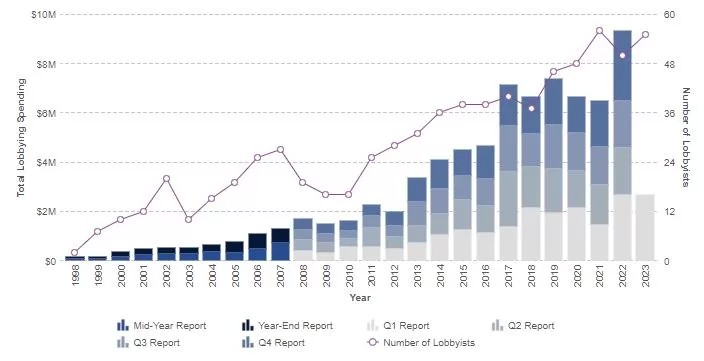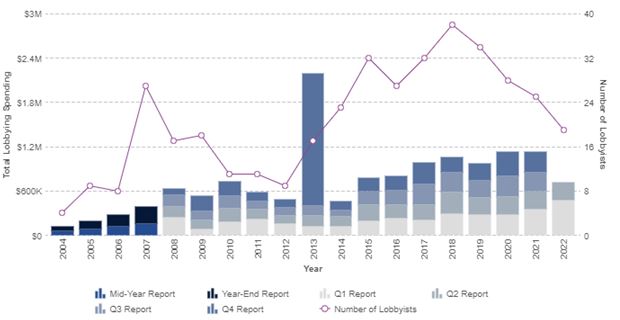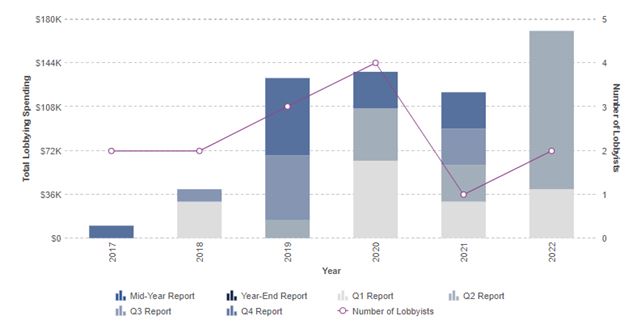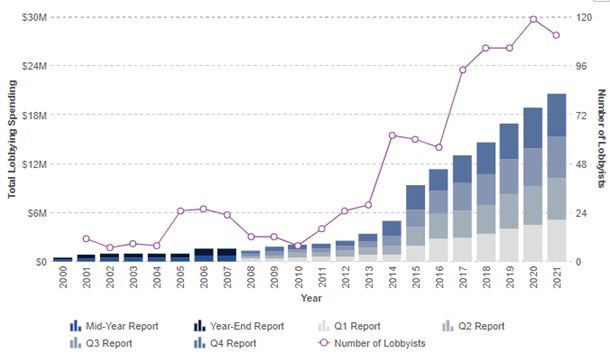PEST Analyses

PESTEL is a strategic analytical tool and the acronym stands for political, economic, social, technological, environmental and legal factors. BYD PESTEL analysis involves the analysis of potential impact of these factors on the bottom line and long-term growth prospects of the electric automaker. Political Factors in BYD PESTEL Analysis Favourable government policies for EV and renewable energy In 2022, global EV sales soared by 68%, reaching a record 10.6 million units. This meteoric rise coincides with a wave of supportive government policies. China, the world’s largest car market, offers generous purchase subsidies and tax breaks for EV buyers. These incentives have propelled China to become the undisputed leader in EVs, accounting for over half of global sales. Likewise, European countries like Norway and the United Kingdom have implemented ambitious carbon reduction targets, coupled with EV purchase incentives and charging infrastructure investments, contributing to their impressive EV uptake rates. The impact of favourable policies extends beyond the realm of personal transportation. Renewable energy sources, once relegated to the fringe, are now experiencing a golden age thanks to supportive government initiatives. In the United States, the Inflation Reduction Act of 2022 offers tax credits for renewable energy projects and EV manufacturing, a move projected to inject USD370 billion into clean energy over the next decade. Similarly, India, the world’s third-largest carbon emitter, has set a goal of achieving 50% renewable energy capacity by 2030, backed by ambitious solar power targets and financial incentives for renewable energy developers. These policy shifts are not driven solely by environmental concerns. Governments are increasingly recognizing the economic benefits of a green transition. EVs create new jobs in manufacturing, installation, and maintenance, with estimates suggesting that the global EV industry could create 30 million jobs by 2030. Renewable energy is also attracting substantial…

PESTEL is a strategic analytical tool and the acronym stands for political, economic, social, technological, environmental and legal factors. Marriott PESTEL analysis involves the analysis of potential impact of these factors on the bottom line and long-term growth prospects of the international hotel chain. Political Factors in Marriott PESTEL Analysis There are some political factors that may affect Marriott International. Such factors include political stability, security and the risk of terrorism in a given territory, US-China trade wars, the rise of nationalism and terrorism and others. Moreover, the level of bureaucracy and corruption, freedom of press and trade union activities are also political factors with the potential impact on Marriott and other international hotel chains. Political stability Political stability is essential for international hotel business. It allows hotel chains to operate in a predictable and safe environment, which is necessary for investment and growth. When there is political instability, it can lead to a number of negative consequences. For example, political instability can deter tourists from visiting a country, which can lead to a decline in demand. It can also increase the costs of operations, such as the cost of security measures and insurance premiums. In some cases, political instability can even lead to Marriott having to close its hotels in a country. For example, in 2022, Marriott was forced to close some of its hotels in Ukraine following the Russian invasion. Trade union activities Trade union activities can have a significant impact on hotel business, both positive and negative. Trade unions can help to improve the working conditions for employees. They can negotiate for higher wages, better benefits, and safer working conditions. This can lead to a more motivated and productive workforce, which can benefit Marriott’s bottom line. Trade unions can also help to improve the…

PESTEL is a strategic analytical tool and the acronym stands for political, economic, social, technological, environmental and legal factors. Netflix PESTEL analysis involves the analysis of potential impact of these factors on the bottom line and long-term growth prospects of the popular streaming platform. Political Factors in Netflix PESTEL Analysis There are many political factors that can affect the financial performance of on-demand streaming services such as Netflix. These factors include government stability, trade union activities, bureaucracy and government tariffs. Moreover, corruption, trade controls and the freedom of press also belong to the list of political factors with a potentially significant impact on entertainment services providers. Leaving a market because of war Netflix was indirectly affected by Vladimir Putin’s invasion of Ukraine. Having entered Russian market in 2016, the largest streaming service in the world announced on March 6, 2022 the suspension of its services, projects and acquisitions in the country. Leaving the country within 10 days after Putin declared war in Ukraine was an act of solidarity with Ukraine and other global brands suspending their operations in Russia. At the same time, Netflix had no other choice, because had the company remained in Russia its brand image would have suffered significantly with negative implications on the stock price. Government restrictions Apart from Russia, China is the only country where Netflix is not available. Although they dress it otherwise, the Chinese government has banned the popular streaming platform because they don’t want their citizens to be influenced by western culture. In other words, Chinese authorities fear that a wide range of shows and programs available on Netflix may influence the population and they might become more difficult to control. Taking into account the massive size of Chinese market, not being allowed to operate in the market is…

PESTEL is a strategic analytical tool and the acronym stands for political, economic, social, technological, environmental and legal factors. Apple PESTEL analysis (or Apple PESTLE analysis) involves the analysis of potential impact of these factors on the bottom line and long-term growth prospects for the tech giant. Political Factors in Apple PESTEL Analysis The extent to which Apple is able to achieve its primary objective of profit maximization depends on a wide range of political factors. These include government stability, level of bureaucracy, corruption, freedom of press, home market lobbying groups etc. Additionally, activities of trade unions can be mentioned as important external political factors for Apple. Tax Payments The payment of taxes is a noteworthy political factor affecting Apple. The multinational technology company uses complex legal means to keep its tax payments as low as possible globally, especially in the US and Ireland. In the US, the tech giant holds the majority of its cash offshore so that it can avoid paying corporate income taxes in the US.[1] Any changes in government taxation policies may affect the bottom line for the iPhone maker. In Europe, European Commission concluded that Apple should have paid the Irish state at least €14 billion (USD 16.2 billion) in corporate tax for 2004-2014. However, in 2020 the General Court of the European Union ruled that European Commission was wrong, a decision that was welcomed by the Irish government.[2] Changes in taxation policies in general and the stance of governments and government agencies towards the iPhone maker in particular are external political factors that have implications for the business. Dispute with US Federal Bureau of Investigations The most significant case that illustrates the potential impact of a political factor relates to Apple’s battle with US Federal Bureau of Investigations (FBI). Specifically, the…

PESTEL is a strategic analytical tool and the acronym stands for political, economic, social, technological, environmental and legal factors. Nvidia PESTEL analysis involves the analysis of potential impact of these external factors on the bottom line and long-term growth prospects of the multinational technology company. Political Factors in Nvidia PESTEL Analysis There is a host of political factors that can affect Nvidia. These include geopolitical tensions, government incentives and regulations, corruption, freedom of press, trade union activities and others. Moreover, the extent of bureaucracy, government tariffs and trade controls, as well as, tax policies can also have implications on the performance of the multinational technology company. Government intervention Nvidia had to experience the effect of an external political factor of government intervention into its growth plan. The company had to abandon the acquisition plan of chip technology company ARM for USD 40 billion from Soft Bank after an investigation from UK’s Competition & Markets Authority and the US Federal Trade Commission sued to block the proposed merger due to the concerns that combined firm to stifle competing next-generation technologies.[1]. The multinational technology company is not immune from such interferences in the future as well. US-China Tech War Nvidia had to bear the collateral damage due to US-China tech war during the past few years. The world’s most valuable semiconductor company has been blocked from selling its most advanced chips — the H100 and A100 series — to Chinese customers since August when the US imposed export controls on technology used for AI. Nvidia has been forced to reconfigure some of its chips to comply with US rules limiting the performance of products sold in China. It is not the first instance where Nvidia and other major technology companies have been affected by so called tech war between…

WeWork PESTEL analysis is a strategic analytical tool and the acronym stands for political, economic, social, technological, environmental and legal factors affecting the global flexible workspace provider. Political Factors in WeWork PESTEL Analysis Political factors that can affect workspace providers such as WeWork are multiple and include government stability, tax policies, lobbying and level of bureaucracy. Co-working providers are also affected by corruption, freedom of press, activities of trade unions and other factors. Government stability Government stability plays an important role on the long-term growth prospects of WeWork. The global flexible workspace provider operates 756 locations in 38 countries[1]. Changes in government policies may impact WeWork’s ability to secure office space, enter in lease agreements and manage its workforce. Furthermore, government instability or war such us the one currently going on in Ukraine can result in the loss of WeWork properties with direct implications on the bottom line. Tax Policies WeWork is subject to tax policies in all 38 countries it operates. The co-working giant is directly affected by corporate taxes. The higher the corporate taxes, the higher is the cost of doing business in any particular region. Moreover, favourable treatment of leases in some countries increases the company’s profitability, considering that the workspace provider leases the majority of its locations. Despite its huge size, in the past WeWork had benefited from tax breaks intended for small businesses. Specifically, by 2019 the company had received about GBP 2 million tax refund on property taxes it had paid in UK.[2] Lobbying Lobbying can affect the performance and growth prospects of the global flexible workspace provider. It is an attempt by individuals or organizations to influence government decisions. Potentially lobbying can benefit co-working and flexible working sector through tax befits for leasing arrangements and providing other benefits…

PESTEL is a strategic analytical tool and the acronym stands for political, economic, social, technological, environmental and legal factors. Starbucks PESTEL analysis involves an analysis of potential impact of these factors on the bottom line and long-term growth prospects. Political Factors in Starbucks PESTEL Analysis Starbucks sales are affected by a wide range of political factors, directly and indirectly. The patterns of sourcing raw materials have evolved into a significant political factor that affects the business in a direct manner. Specifically, nowadays it has become compulsory for Starbucks and other global businesses to engage in sourcing of raw materials complying to environmental and social norms that are becoming stricter. Neglecting such norms intentionally or unintentionally are likely to cause political pressure on the business. Starbucks performance can also be affected by the level of relationships between the USA and countries that produce coffee beans, as well as, countries where Starbucks operates. Additional political factors affecting the business include political stability in the country, the impact of home market lobby groups and a wide range of non-government organizations. Labour Union Issues Labour unionisation can be mentioned as a stark political factor within PESTEL analysis of Starbucks. The coffee chain has ongoing issues with unionisation of its workforce for many years, but this problem escalated last year with increasing numbers of employees willing to join unions. This was one of the main reasons for the return of Howard Schultz as CEO for the third time. The world’s largest coffeehouse chain strongly opposes unionisation of its workforce and occasionally engages in contradictory practices to express its opposition. For example, in May 2022 the company announced a pay raise for all non-unionized workers and in August 2022 Starbucks sent formal complain to National Labour Relations Board (NLRB) questioning the fairness of the…

PESTEL is a strategic analytical tool used to assess the impact of external factors on businesses. The acronym stands for political, economic, social, technological, environmental and legal factors affecting businesses. It is important to clarify that businesses have little and no influence over factors within PESTEL framework; however they can develop strategies to eliminate or at least to minimize negative effects of these factors. IKEA PESTEL analysis can shed a light into opportunities to strengthen competitive advantage of the business in various fronts. Political Factors in IKEA PESTEL Analysis IKEA revenue is subject to political situation in the market and a wide range of political factors such as government attitude towards the brand and political stability. Other political factors that can affect IKEA’s business include the level of bureaucracy, degree of corruption, home market lobbying and import restrictions in markets where the global furniture retailer operates. Use of Prison Labour in East Germany The company has been involved in a series of issues on political grounds. In 2012, IKEA had to admit that the company used prison labour in East Germany in 1970s and 1980s to produce its products. It has to be specified that the use of prison labour took place at manufacturing sites of IKEA suppliers, not the sites managed by the retail giant itself. An independent report by Ernst and Young concluded that while IKEA had a policy of visiting production facilities to control working processes, access to East German suppliers had been restricted. Although IKEA offered formal public apology to those affected, the incident caused a significant political controversy around the globe.[1] Moreover, allegations that IKEA founder Ingvar Kamprad was an active recruiter for Swedish Nazi group has sparked controversy with negative effects on the brand image.[2] Symbolic Role of Doll Lufsig Another…

PESTEL is a strategic analytical tool and the acronym stands for political, economic, social, technological, environmental and legal factors. McDonald’s PESTEL analysis involves the analysis of potential impact of these factors on the bottom line and long-term growth prospects. Political Factors in McDonald’s PESTEL Analysis McDonald’s revenues and long-term growth prospects are affected by a number of political factors such as levels of bureaucracy and corruption, government stability and the freedom of press. Moreover, activities of trade unions and home market lobby groups can be referred to as noteworthy political factors that may affect multinational corporations. Exiting Russia On March 8, 2022 McDonald’s announced that it had temporarily closed restaurants in Russia and paused operations in the market due to Russia-Ukraine war conflict. The humanitarian crisis caused by the war in Ukraine, and the precipitating unpredictable operating environment, have led McDonald’s to conclude that continued ownership of the business in Russia is no longer tenable, nor is it consistent with McDonald’s values.[1] On May 2022 the fast food chain announced it starts the process of selling its business in Russia, meaning that the company is leaving the country permanently. Exiting one of its biggest markets where McDonald’s had more than 800 restaurants employing 62000 employees[2] due to a war conflict is a stark example for a political factor affecting the fast food chain. Trade Unions Activities of trade unions and their implications belong to the list of important political factors affecting McDonald’s. Trade unions may succeed in their demands to increase employee wages and to improve working conditions and these will have negative implications for the profitability of the business. Accordingly, the fast food giant is known worldwide for its hostility to trade unions. For example, in 2021 it was reported that McDonald’s has, for years, spied…

PESTEL is a strategic analytical tool and the acronym stands for political, economic, social, technological, environmental and legal factors. Amazon PESTEL analysis involves the analysis of potential impact of these factors on the bottom line and long-term growth prospects of the e-commerce giant. Political Factors in Amazon PESTEL Analysis The range of political factors that affect Amazon include but not limited to the political stability or instability in the country, the influence of home market lobbying and pressure groups and the attitude of the government towards e-commerce and retail industries in particular. Additionally, the freedom of press, trade unions and their activities and the extent of corruption belong to the list of political factors with potential implications on Amazon business practices. Due to the scope and scale of its business operations, Amazon plays an indirect role in politics in USA, Europe and some other regions. In other words, in markets where Amazon has a strong presence, the ruling government usually has a certain stance towards the e-commerce giant in particular among internet retailers. Stance of governments towards Amazon Most people either love or hate Amazon and this extends to politicians and government officials as well. Former US President Donald Trump was vocal in his dislike of the tech giant and sometimes criticised the company and its then CEO Jeff Bezos on Twitter. The current President Joe Biden also criticizes Amazon for paying low taxes and its opposition towards formation of labour unions. In February 2021 Biden “released the 2 ½-minute video. While he omitted the name of the powerful e-commerce giant, his remarks were seen as an unmistakable show of solidarity with a labour movement that failed to secure anything similar from his recent predecessors.”[1] The company has hired the former press secretary of the US President, Jay…
